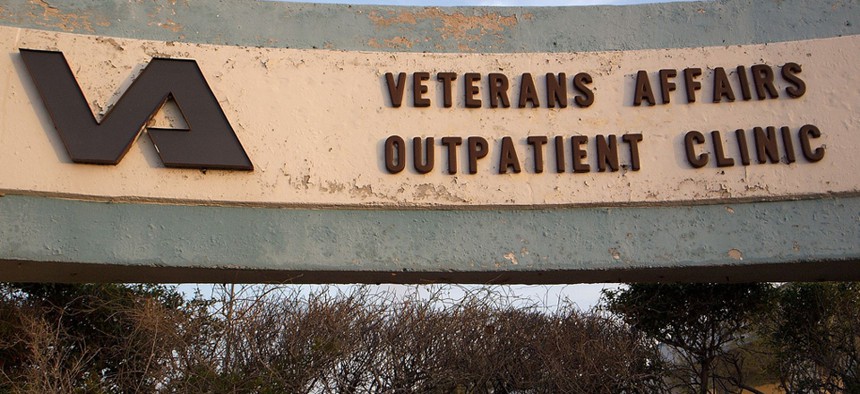
Flickr user qnr
Are Budget Battles Slowing Health Care Reforms for Veterans?
Congress is struggling to push legislation over the finish line in response to reports that veterans seeking health care have been left languishing on secret wait lists.
As lawmakers scramble to push through legislation that aims to stop veterans from dying waiting for health care, veterans' groups hope funding squabbles over the cost of the reforms don't impede veterans' access to medical treatment.
The House and Senate are still struggling to push legislation over the finish line in response to reports raised back in April that veterans seeking health care have been left languishing for months on secret wait lists--or never even making it into the queue. Lawmakers were expected to send reform legislation to the president before the Fourth of July recess, but they failed to reach an agreement in time. They're now under pressure to show results before Congress breaks again at the end of the month.
Not wanting to let the momentum from the crisis wane, veterans service organizations are trying to: coax lawmakers to prioritize reforms, help them convince the Congressional Budget Office to lower its cost assumptions, and guarantee a funding stream is put in place.
The legislation the House and Senate conference committee is working to iron out would make it easier to remove incompetent officials at the Veterans Affairs Department and ensure veterans receive more timely care, even if it means going outside the VA.
The reform enjoys broad bipartisan support, but it's suffering from sticker shock over estimates by the non-partisan CBO that it could cost as much as $50 billion a year to implement.
Some veterans' groups fear that lawmakers could succumb to pressure to show fiscal restraint and rely on budget gimmicks that bring the legislation's cost estimates down, but that don't provide sufficient resources to ensure veterans' access to care will be met.
"Our biggest concern is the funding," said Joseph Violante, the national legislative director, with the Disabled American Veterans. "There is no clear path here that I can see that VA is going to get the funding they need. ... It's frustrating, because veterans are going to have high expectations of being able to get timely care, whether that's in the private sector or at the VA, and I don't know that VA is going to be able to fulfill that."
Other veterans' advocates are focusing on working with conference committee members and the CBO to ensure the key goals of the legislation are achieved while still keeping the costs down.
For example, a big part of the reason for the CBO's higher-than-expected cost estimate was its assumption that some 8 million additional veterans might flock to the VA, given the expected improved access to health care.
The bills under consideration would restrict the veterans who could seek care outside the VA to those who live more than 40 miles from a VA health center. But other restrictions that would keep costs down are under consideration, such as requiring that only veterans who were left waiting by the VA can go outside it for treatment.
"We've encouraged CBO to give Congress an estimate of just what it would cost to address the current veterans who are currently enrolled, who are existing on the backlog today, because that was what this legislation was originally designed to address," said Louis Celli, the legislative director with the American Legion. "If we had that estimate, I think everybody would be much more comfortable with the fact that this is an emergency piece of legislation specifically designed to address this backlog, and if we use it for that, the costs will be much more in line and in keeping with something reasonable to address this emergency."
Other veterans' organizations are so fed up with waiting for reforms to improve veterans' care that they are comfortable with lawmakers using a variety of budget tools to get the legislation signed into law. That's even if it means the VA will have to prove it's making progress in order to secure additional funds from Congress down the road to complete the reforms.
"There is a range of options to deal this from a budgetary perspective, and I think they are going to end up coming to an agreement on a way to move forward on the budget that recognizes the crisis aspect of this and that is also fiscally responsible," said Alex Nicholson, the legislative director of the Iraq and Afghanistan Veterans of America.
He predicted lawmakers would have to rely on a mix of using available resources at the VA, debt financing, and additional appropriations down the road, which he said was an acceptable solution.
"Our No. 1 priority is for them to get it done. It's concerning that it's stretched it out this far already," he said. "We don't want to see this delayed by posturing or fiscal tactics. The provisions that really expand and enhance the VA's capacity and flexibility to help people who are actually waiting right now and are not getting care and treatment—that should be the No. 1 priority."
NEXT STORY: Put the Phone Down, and No One Gets Hurt







